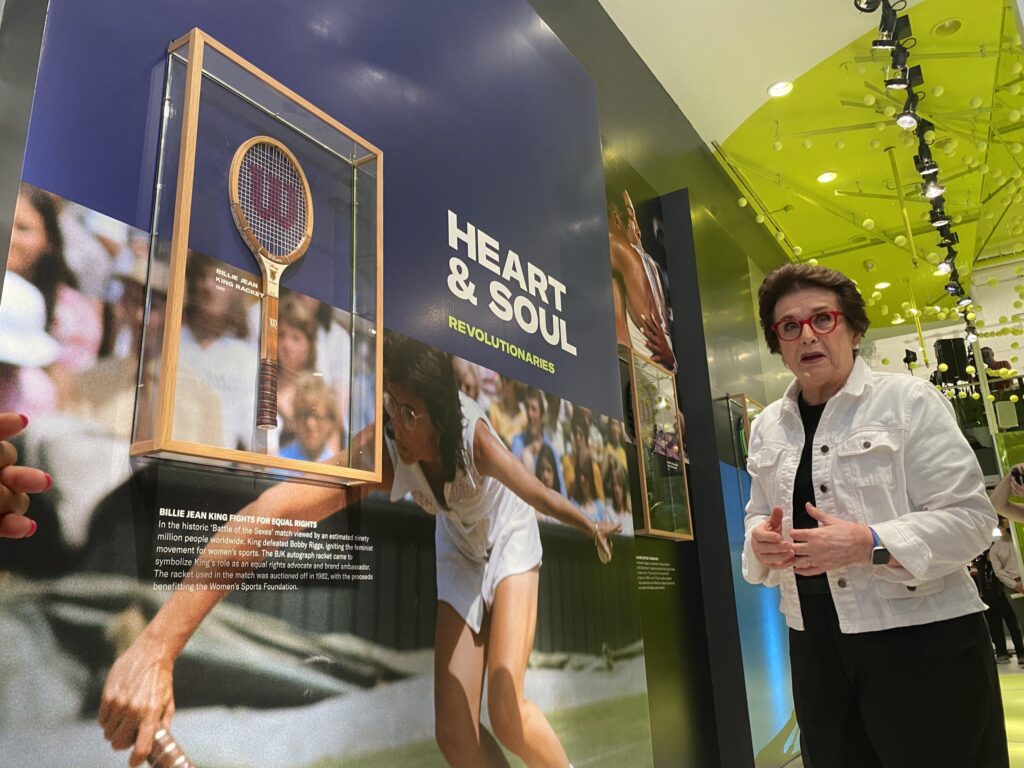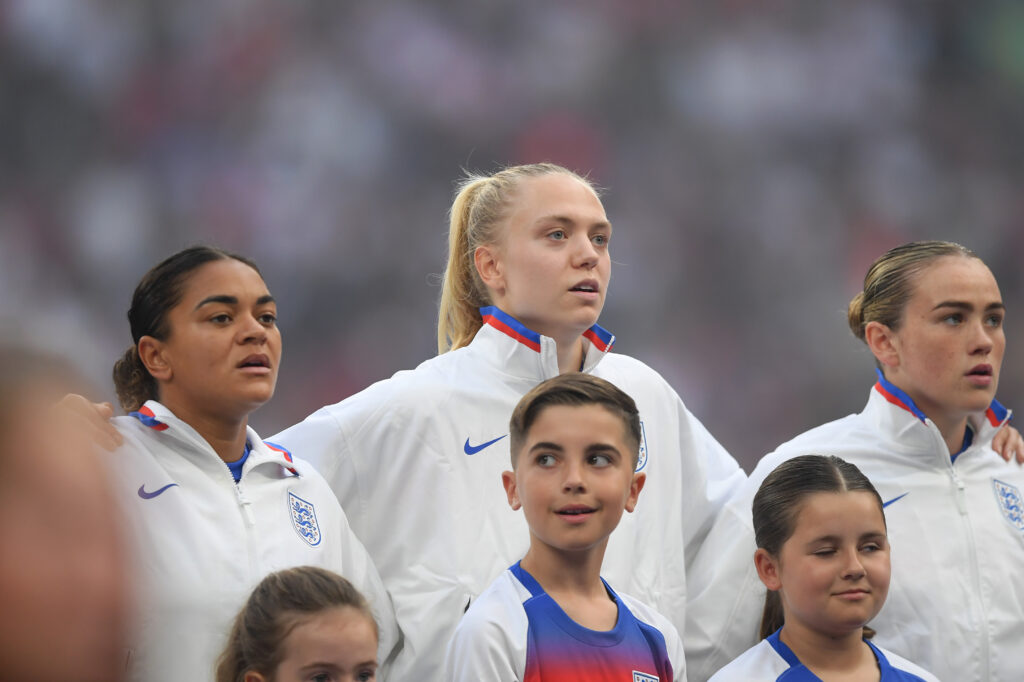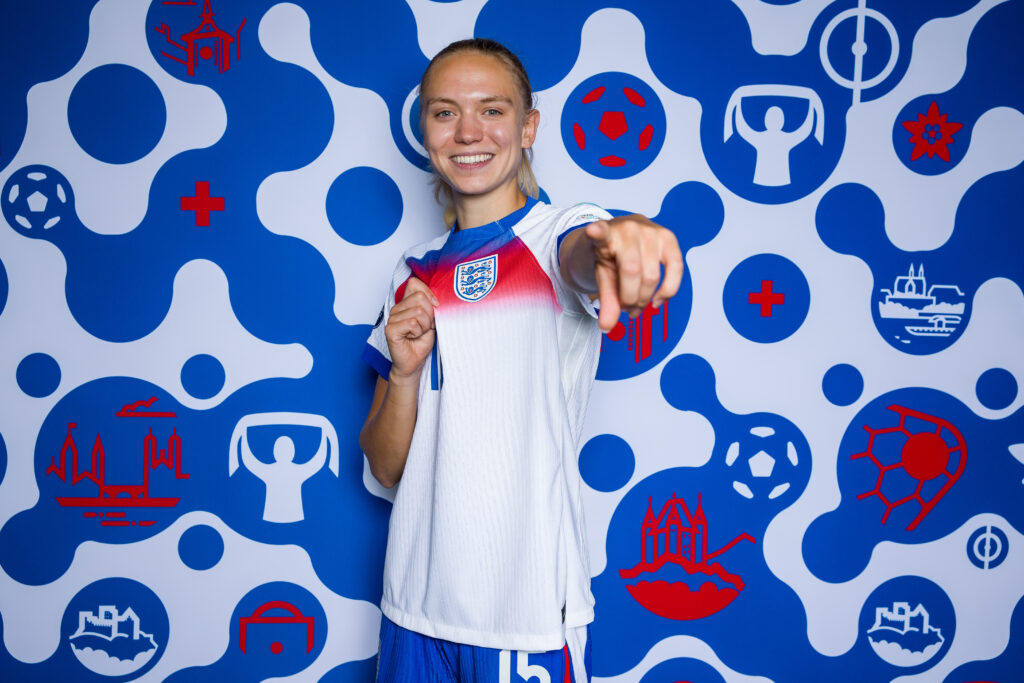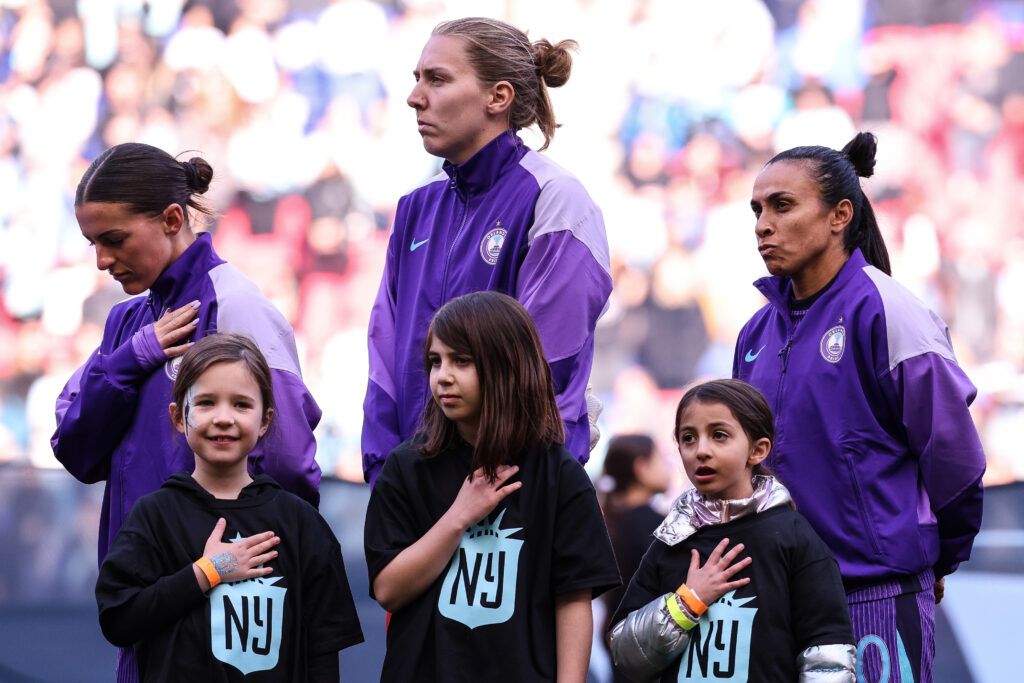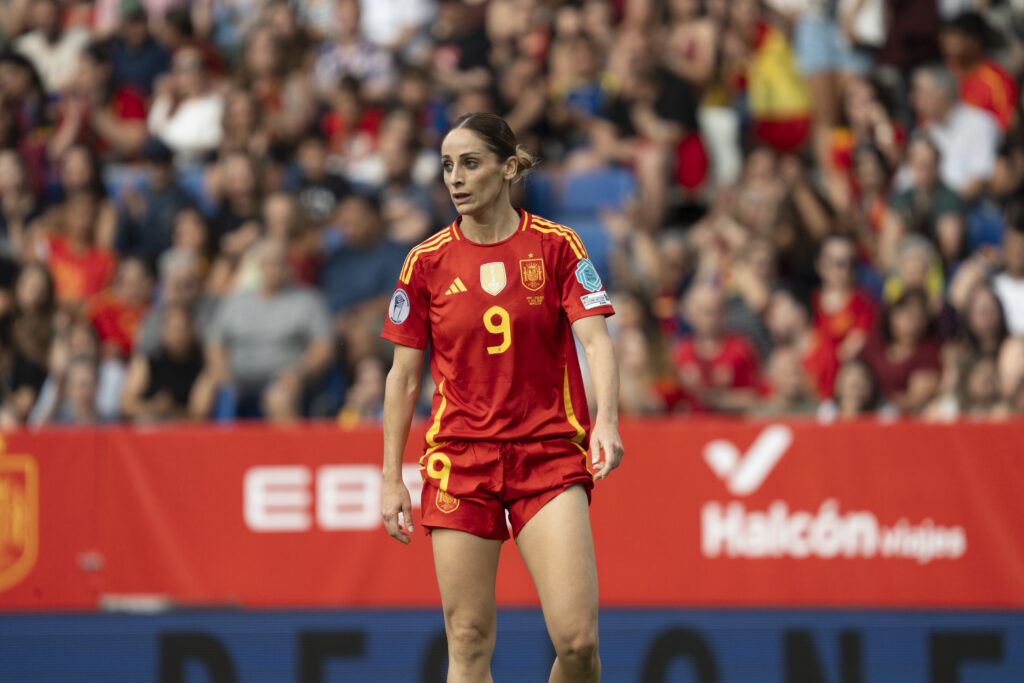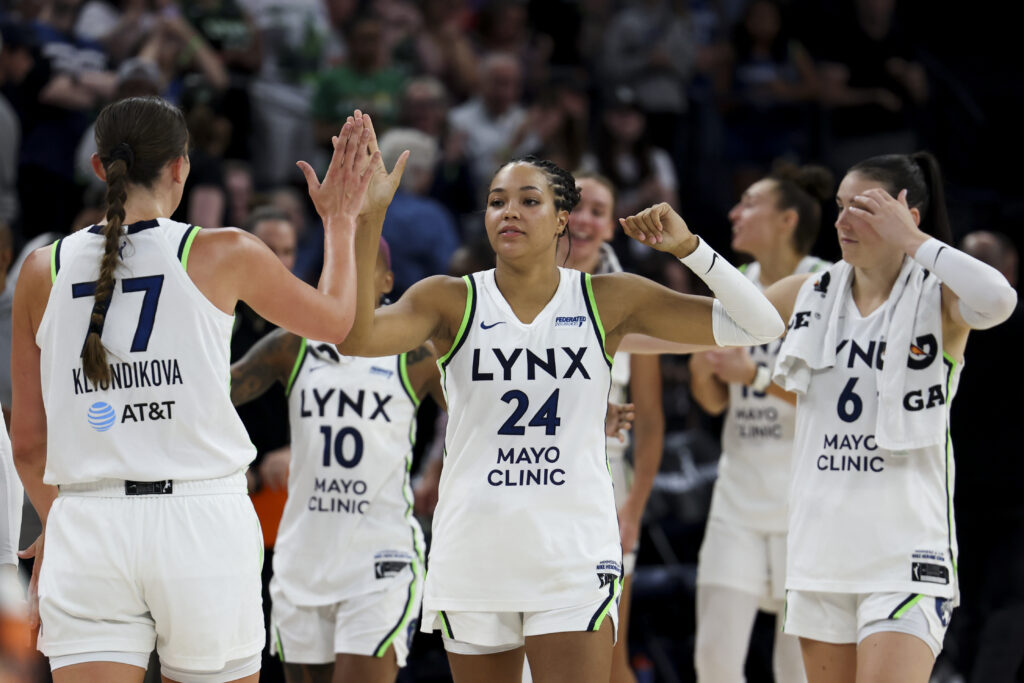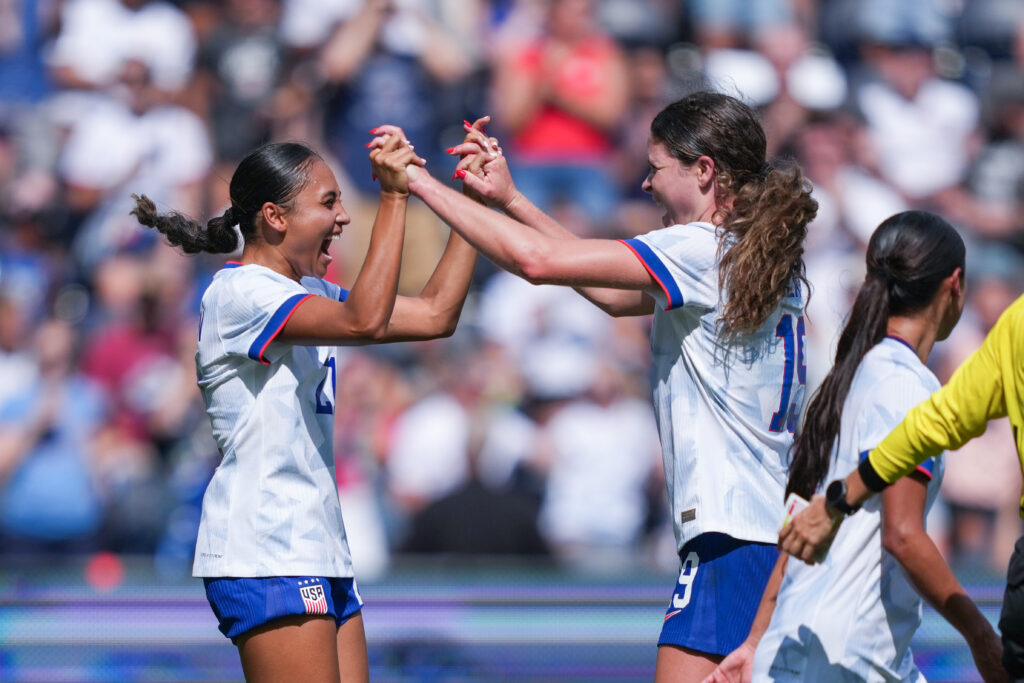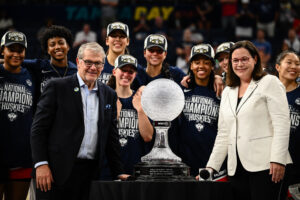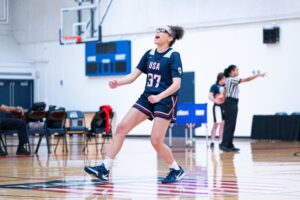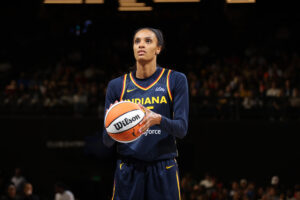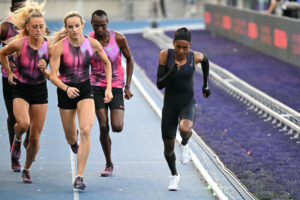The buzz-filled, block-long line started forming outside 594 Broadway well before noon yesterday. Lines outside stores are nothing new in SoHo, but this one felt pretty refreshing.
The store folks were waiting on is a new “pop-up museum” from Wilson that celebrates the brand’s long history in tennis as New York City readies for the US Open. And the real draw was the tennis legend who was on hand to officially open the location: the truly incomparable Billie Jean King.
Rather than relaxing in the glow of her 39(!!!) Grand Slam titles (12 singles, 16 women’s doubles and 11 mixed doubles), her massive role in the feminist movement (you’ve heard of the “Battle of the Sexes,” hopefully) and her unimpeachable status as an icon in the tennis and LGBTQ communities, the 77-year-old King is as busy as ever.

King strolled into the venue waving and smiling at guests and ready to talk through Wilson’s impressive role in growing the sport of tennis, as well as discuss her just-released book, All In, an autobiography that pays special attention to her commitment to social justice.
Merely being in the presence of such a legend is pretty awe-inspiring. In King’s case, hearing her talk at an event that would have been awesome even if she just posed for a couple of pics, it’s doubly special since everything she says is so thoughtful.
One picture in the exhibit focused on Jack Kramer, who helped make tennis a viable profession after decades of it being strictly amateur.
“I did not like being an amateur,” King said to her co-host/guide Katrina Adams as they paused at the image. “We were the best players in the world. And where was the money going, anyway? Finally, in 1968, we got pro tennis.”
In front of a picture of Serena Williams, one of the few players, men or women, to achieve more on the court than King, she looked admiringly at the image of the 23-time Grand Slam singles champ. After reflecting proudly on what Williams achieved when she won the 2017 Australian Open while 3 months pregnant, King said, “At my age, I’ve seen a lot of generations come and go. And it’s a little sad. Now it’s Serena, Federer, Nadal’s turn—they’re winding down. There’s definitely a shift.”

The last photo in the first-floor exhibit space featured Federer himself, another Wilson racquet user with 20 Slam titles to his name. Here, King just nerded out on tennis, breaking down Fed’s ability to keep his head still and the way he’s gradually changed his grip on his backhand. It wasn’t terribly useful information for non-tennis experts, but hearing King speak so intently on it provided SMR-inducing pleasure just the same.
Having completed the mini-tour, King, Adams, a few members of the media and some special guests from the Harlem Junior Tennis and Education Program, for which former WTA pro Adams serves as the Executive Director, headed upstairs for a more intimate chat.
As Adams told JWS of her friend and mentor, “Billie Jean has never retreated in the background of anything. She is truly a hero to men and women alike for what she stands for. She’s authentic in every way. And anyone that is out there fighting for positive advocacy for equality and inclusion, we need those people.”

King, who founded the Women’s Sports Foundation in 1974, only got more captivating as the conversation continued. She gave a perfect summary of the importance of Title IX and took attendees back to the early 70s when she was one of the original nine women who signed on to launch the women’s tour.
Later, King gave props to Just Women’s Sports (*smile emoji*).
“I love what you’re doing,” she said about JWS. “Even though 40 percent of professional athletes are women, we only get 4 percent of the attention. This is helping that void and get the word out, which I think is fantastic.”
Asked her thoughts on Naomi Osaka and the defending U.S. Open champ’s ongoing issues with the media, especially around press conferences, King had a lot to say.
“I haven’t had a chance to listen to her and ask that question, but I need to. I’m giving her space,” King said.
“I just want her to take care of herself, and every woman athlete, every male athlete, all athletes to take care of themselves.
“But part of your obligation as an athlete, as a professional athlete—or a performer, or in entertainment—is we have to talk to the media, because that’s part of our promotion, it’s part of our giving back for the kids, and to get people interested in our sport. They have to know who you are… how do they get to know who you are?”
King also touched on the preparation needed for the professional athlete off of the court or the field.
“I think Rookie School is really important,” she said. “You’ve gotta go through courses and you’ve got to understand what it means to be a professional athlete or entertainer. And part of that is you have to talk to the media. It’s horrible now. I’ve talked to media people. They can never get interviews with any of the players. I’m like, this is ridiculous. That’s part of their obligation. They say they have social media and their own brand, but that’s not enough. You’ve got to give to others that are helping you.”

King, gesturing at the four reporters surrounding her, said, “Also, each one of you is trying to make a living. I used to sit in media conferences and, every guy—it was almost all men then—every single guy in there was just trying to make a living.
“And they were good writers! I liked reading what they had to say, even if I didn’t agree with them. We’re kind of all in this world together. So it’s not just about ‘me and my career,’ it’s about everyone. And so how can you find that balance of taking care of yourself first, and then finding ways to give back?”
Wrapping up, King said, “I’m just not sure if we’re given enough information and understanding of what it means to be a professional athlete. I just don’t know.”
Among King’s qualities that shone throughout the event were her energy, generosity, wisdom and thoughtfulness. As Adams gave accolades for All In, King never failed to give props right back for Own the Arena, the book Adams released earlier this year. And King’s request to give the mic to the teenagers and kids in the audience to ask their thoughts and feelings about certain issues highlighted the greater mission of connecting across generations.
If King’s never-ending work to improve both sports and society at large have taught us anything, it’s that we can be sure she’ll keep going, raising others up, and making the world a better place along the way.
